Easy Delicious Vegan Recipes For Babies and Toddler
Table of Contents
What do we know about vegan or plant based diets?
Some of you will want to follow a vegan or vegetarian diet, and therefore pass this onto your babies. This is not a problem but there are a few things to bare in mind:
Understanding where nutrients come from.
What supplements you may have to include in your babies diet daily.
Vegans do not consume animal or fish products of any kind, including dairy, eggs or honey. If your baby does not eat meat, you will need to make sure that your baby is getting nutrients from other plant based sources. For example nut butters are great for protein and lentils are equally good for plant based protein. You should be aware, however, that it may be more difficult for children following a vegan diet to get certain nutrients because some vitamins and minerals, such as B12 and iron, are either not found in plant-based foods or are harder for our bodies to absorb in plant form. Children on a vegan diet therefore may need to take supplements. Of course, at the start of your baby’s first year, the main food source will be your breast milk or formula milk. So, there will be time during these early months to plan ahead.
If you choose a plant based milk, make sure it is fortified so that all the vitamins and minerals that you will find in cow’s milk, you will get in a plant based alternative.
Iron is also very important so you need to make sure your baby has a fortified breakfast cereal, dark green vegetables like spinach and beans and lentils as part of their diet.
The Power of Vegan and Plant-Based Diets for Baby-Led Weaning
As the awareness of the impact of our dietary choices on the environment and our health continues to grow, many parents are embracing a vegan or plant-based lifestyle for their families. This includes adopting a vegan or plant-based approach to their babies' first foray into solid foods, known as baby-led weaning. This method allows babies to explore and self-feed whole foods right from the start, promoting independence, diverse palate development, and healthy eating habits. Let's delve into the numerous advantages of vegan and plant-based diets for baby-led weaning.
Nourishing Their Growing Bodies
One concern parents often have when considering a vegan or plant-based approach to baby-led weaning is whether their baby will receive adequate nutrition. However, with careful planning and a well-balanced diet, a vegan or plant-based approach can provide all the essential nutrients a growing baby needs. Plant-based sources of protein include beans, lentils, tofu, and quinoa, while calcium can be obtained from fortified plant-based milk and leafy greens. Iron-rich foods, such as fortified cereals, tofu, and dark leafy greens, can provide the necessary iron for babies.Empowering Palate Development
Introducing a wide variety of flavours and textures during baby-led weaning is essential for cultivating a diverse palate. Vegan and plant-based diets inherently offer a vast array of flavors, colors, and textures from fruits, vegetables, legumes, grains, and nuts. This exposure to a rainbow of whole foods can help babies develop a lifelong love for fruits and vegetables, reducing the likelihood of developing picky eating habits later in life.
Fostering Environmental Consciousness
Growing concerns about the environmental impact of animal agriculture have prompted many families to adopt vegan or plant-based diets for ethical reasons. By introducing babies to a plant-based lifestyle from the start, parents have an opportunity to instill a sense of environmental consciousness and empathy for animals at a young age. Teaching children about the interconnections between their food choices, animal welfare, and the environment can set them on a compassionate and sustainable path.Reducing the Risk of Chronic Diseases
Research suggests that a well-planned vegan or plant-based diet can help reduce the risk of chronic diseases later in life. By introducing fruits, vegetables, whole grains, and legumes during baby-led weaning, parents can set the stage for a healthy future for your little ones.
All of my recipes that are vegan, have this in mind, and you will find healthy nutritious recipes that you will be able to feed your baby with confidence. If you are in any doubt at all with regard to changing your child’s diet, always consult with a medical practitioner.
Going Vegan at Breakfast: A Wholesome Journey
Breakfast is often considered the most important meal of the day, providing us with the necessary fuel to kickstart our mornins. In recent years, the popularity of vegan food has skyrocketed, and this dietary choice is no longer confined to lunch and dinner options alone. With an ever-expanding range of plant-based alternatives, breakfast time has become an exciting and delicious journey for those embracing a vegan lifestyle.
One of the easiest and most fulfilling ways to begin a vegan breakfast is by swapping out traditional dairy products. Instead of cow's milk, almond, soy, oat, and coconut milk are available in abundance, ready to be poured onto your favorite cereals or mixed into a velvety smoothie. Additionally, vegan-friendly butter alternatives made from vegetable oils can be spread onto toast or added to scrumptious pastries.
For those who enjoy a hearty meal to jumpstart their day, tofu scrambles have become a popular alternative to traditional scrambled eggs. Tofu, a versatile and protein-packed soy-based product, can be seasoned and cooked with an array of spices and vegetables to create a satisfying egg substitute. When combined with colorful bell peppers, onions, and a sprinkle of turmeric for a vibrant yellow hue, these tofu scrambles are not only visually appealing but also packed with nutrition.
Pancakes, another breakfast classic, can also be easily veganized. By replacing eggs with flaxseeds soaked in water, and cow's milk with a plant-based alternative, a stack of fluffy, perfectly golden vegan pancakes can be achieved. These can be complemented with a variety of toppings such as fresh fruit, maple syrup, or even coconut cream for an extra indulgent touch.
For those on the go, smoothie bowls have become a trend that combines convenience with nutritional benefits. These bowls offer a creative canvas to experiment with different flavor combinations and textures. A delicious blend of frozen fruits, such as bananas, berries, and mangos, can be mixed with plant-based milk and topped with a variety of superfoods ranging from chia seeds to granola and nuts. Not only do smoothie bowls provide a burst of energy, but they also offer a vibrant visual appeal that makes breakfast an Instagram-worthy affair.
Here are my recipes that I consider would be a great way to start yours and your little ones day.
A great recipe if you need a make ahead store cupboard porridge mix! Try with an almond milk for a nutritious plant based alternative porridge recipe.
A great way to add more fruit to your baby or toddler's diet. A fruit smoothie bowl can be made with frozen fruit to give a creamier and thick texture.
Introducing my home made no-sugar granola powder made with oats, rye flakes, nuts and seeds. A great breakfast idea that is delicious for the whole family.
This breakfast bar is similar to a porridge oats bar but without using eggs and no added banana. Perfect finger food for BLW and packed with quinoa protein.
My apple fritters (similar to an apple pancake) are made with ground oats, grated apple, cinnamon (can be left out), and oat milk, with no added sugar.
Does a BBQ baked banana bring back memories for you too? This is such a healthy snack or dessert that can be served with coconut, strawberries and more!
Plant-Based Delights: Nourishing Lunches and Dinners
Whether you are fully committed to a vegan lifestyle or simply looking to incorporate more plant-based meals into your routine, the range of options available is immense. From vibrant salads bursting with colours and flavours, to hearty and satisfying entrees, plant-based lunches and dinners offer a world of delicious possibilities.
For lunches, you can opt for finger foods that are easy for little hands to hold and chew. Start with avocado slices, which are packed with healthy fats and essential nutrients. Pair them with roasted sweet potato wedges or baked carrot sticks, providing a healthy dose of fibre and vitamins. Soft-cooked lentils or quinoa can be served as protein-rich finger foods.
For a more substantial lunch option, consider a plant-based pasta dish. Use whole wheat or gluten-free noodles and toss them with a variety of steamed vegetables, such as broccoli, cauliflower, and peas. A homemade tomato sauce made from pureed tomatoes, garlic, and herbs can add a flavorful touch to the dish.
When it comes to plant-based dinners, introducing legumes is a great idea. You can prepare a creamy lentil and vegetable curry served with cooked brown rice. This dish is not only rich in protein but also provides a good amount of complex carbohydrates and fibre. Another option is cooking a hearty vegetable and bean chilli, featuring ingredients like kidney beans, bell peppers, and tomatoes. Serve it with a side of cornbread or whole wheat tortillas for a complete meal.
For a lighter dinner option, you could prepare a colourful vegetable stir-fry with tofu or tempeh. This dish can showcase a variety of vegetables such as bell peppers, snap peas, and mushrooms, sautéed in a flavourful sauce made from soy sauce, ginger, and garlic. Serve it over a bed of quinoa or brown rice.
Remember to consult with a paediatrician or registered dietitian to ensure your child is receiving all the essential nutrients they need on a plant-based diet. With careful planning and a diverse selection of plant-based foods, babies and toddlers can thrive on a nutritious and delicious plant-based diet.
My parsnip puree recipe is a great option for babies and toddlers. You can customise by adding different fruit and veggies to make a yummy meal for baby.
This is a yummy, quick and easy creamy coconut milk pasta with tomato pasta recipe for baby and toddler. A great vegetarian that the whole family can enjoy.
This is actually a vegan kidney bean curry recipe is perfect for baby, toddler and the whole family too. A great plant based/dairy free dinner or lunch.
This lentil patty recipe is a great way to serve soft, easy to digest lentils to baby for baby-led weaning. A great finger food option for baby and toddler.
This is an easy to prepare and cook lentil soup for a baby-led weaning lunch or dinner recipe. A great nutritious complete meal for the whole family too.
These courgette fritters are the perfect finger food for baby-led weaning, easy for little hands. Packed with vitamins and minerals and high water content.
Simple crudites with a dip is a great veggie recipe for baby, toddler and the whole family. Requires minimal preparation and cooking time with fave veggies!
This is a great four ingredient tater tot recipe great as a finger food for baby or a yummy side for chicken nuggets or fish fingers. Baked not fried!
A yummy carrot soup recipe for baby, toddler and older kids too - a great mid week meal. Carrots are naturally sweet and packed with vitamins and minerals.
This is a great gluten free chickpea pasta sauce for baby and toddler. A quick recipe to make and store in the freezer in portions for lunch or dinner.
This is the perfect recipe for the cold winter months. Using basic ingredients, this easy 4 ingredient potato soup recipe is perfect for baby led weaning.
My Croque Monsieur is a great vegan/dairy free recipe for babies and toddlers. It's a variation on a toasted cheese sandwich. Perfect for lunch boxes too
My refried beans recipe for baby-led weaning creates a consistency that's easy for babies to handle and chew. A yummy recipe for baby and the whole family!
This classic minestrone Italian soup is an excellent choice for baby-led weaning. A yummy hearty meal that is perfect for the current season and winter months.
My easy chickpea and coconut slow cooker curry recipe is a great vegan and dairy free meal idea to feed the whole family. Great for batch cooking too.
You have to try this aubergine (eggplant) bhaji curry recipe! Perfect for babies who have never tried aubergine before. A great dairy free/vegan curry recipe.
A dairy free/vegan carrot and courgette soup recipe that packs in the veggies to make a really healthy and tasty soup. Great for batch cooking for the freezer.
A delicious, healthy leek, broccoli and potato soup that is vegan friendly. A nutritious recipe for the whole family including growing babies and adults alike.
This baked chickpea falafel recipe makes a great high protein, nutritious snack or meal for your baby. They have a soft texture and are easy to grasp and chew.
Try these Black Bean Avocado Bites if you are looking for a nutritious and delicious plant-based recipe. Perfect for both babies starting on solid foods.
A fun oven baked potato wedge recipe that is perfect for little hands to hold! Use a baking potato, cut into wedges and seasoned with a little garlic powder.
This vegetable pilaf rice is a dish where the rice has a richer flavour than ordinary rice includes additional vegetables. Just add your protein of choice!
My deliciously soft textured potato and carrot hash brown allows babies to easily pick them up and self-feed, promoting independence and fine motor skills.
Try this black eyed peas curry for a quick and easy dinner idea that is deliciously vegan, dairy free and nut free! Lightly spiced for little ones' taste buds.
Homemade black bean burgers can be a wonderful, easy recipe option for baby-led weaning (BLW). Black beans are a great source of protein, fibre, and various nutrients, making them a nutritious choice for your little one.
Introduce your little one to a taste of Italy with our homemade sweet potato gnocchi, specially crafted with your baby in mind, and it's only three ingredients!
When the Christmas season is in full swing, nothing brings comfort and joy to the table quite like the Traditional British dish of Bubble and Squeak. This beloved culinary delight, with its quirky name and mouthwatering flavour, has become a classic with festive celebrations on Boxing Day.
Stroganoff is a classic dish and this creamy mushroom stroganoff recipe is a perfect dinner time family recipe! Mushrooms are full of fibre and vitamins.
A one pot slow cooker recipe! This method allows the flavours of the curry to beautifully meld together, resulting in a delicious meal for the whole family.
Patatas Bravas is a traditional Spanish dish of crispy, golden-brown potato cubes served with a zesty tomato sauce. A delicious side to spice up your meal time.
This peanut butter and raspberry bento box recipe is really fun and includes a mini tortilla, instead of the usual bread option, and other favourites!
This is a great on-the-go, make-ahead lunch or snack recipe using butter beans that is sure to be a winner in your home! Serve with breadsticks and crudites.
A delicious lunch for your little one! All the elements of their favourites with a twist on traditional pizza but in a bento box! Add in some fresh fruit.
A fun Easter bunny bento box recipe for your little one! Packs a punch with vitamins and minerals, all in a sandwich lunch! Quick, convenient and simple too!
This must be my favourite pesto recipe that I have made deliciously dairy free! This is an ideal pesto pasta bento box for lunchtime for your little one!
Introducing Plant-Based Snacks and Desserts: Nurturing Healthy Habits in Babies and Toddlers
Embracing plant-based foods during the early stages of life not only fortifies nutritional foundation but also promotes a lifelong love for wholesome, plant-powered nourishment. Let's explore how introducing plant-based snacks and desserts to babies and toddlers can pave the way for a lifetime of healthy eating habits.
Plant-based snacks provide an array of essential vitamins, minerals, and fibre that support a developing child's growth and well-being. Fruits and vegetables, like mashed bananas, soft avocado, or roasted sweet potato wedges, are packed with nutrients and make fantastic, finger-friendly snacks. These natural, plant-based treats offer a burst of flavors that babies and toddlers often find delectable and refreshing.
Furthermore, plant-based desserts offer a healthier alternative to traditional sugary treats, while still satisfying those little sweet tooths. For instance, homemade chia seed pudding, made with plant-based milk and a touch of natural sweeteners, provides a creamy and nutrient-rich treat. Similarly, frozen fruit popsicles or fruit-based sorbets offer a guilt-free, refreshing indulgence. You could also try my watermelon slushie!
Introducing plant-based snacks and desserts to babies and toddlers offers several long-term benefits. Firstly, it encourages a diverse palate, familiarizing children with a wide range of flavors, textures, and aromas. This early exposure lays the foundation for an adventurous eater, allowing them to embrace a broader range of foods as they grow older. Additionally, opting for plant-based options helps instill healthy eating habits from the start. By emphasizing whole, unprocessed foods, parents can steer clear of excessive added sugars, unhealthy fats, and unnecessary chemicals commonly found in commercial snacks and desserts. These choices mitigate the risk of childhood obesity, diabetes, and other diet-related health issues.
Plant-based snacks and desserts for babies and toddlers go beyond mere sustenance; they represent an opportunity to shape healthy eating habits from the onset. By nurturing a love for plant-powered goodies, you can empower your little ones to make conscious, nutritious choices throughout their lives. Whether it's a colourful fruit skewer or a creamy chia seed pudding, these plant-based treats provide the perfect balance between taste and health, making snack time an adventure in wellness.
Here are my snacks and desserts recipes:
This is a simple applesauce recipe to whip up in no time. It can be a great base for so many recipes such as a apple crumble or served on its own with yogurt.
This baked pears recipe is great for baby led weaning. Naturally soft and sweet when baked, they make a yummy snack or breakfast item. The cinnamon adds warmth.
This is an easy sugar free ice lolly recipe for those hot summer days or just for a nice, cooling treat! Suitable for baby-led weaning and for older kids too.
This is a really easy three ingredient vegan flapjack recipe for baby-led weaning and toddlers. Uses plain vegan Greek yogurt instead of butter or eggs.
A finger food option for baby and toddler. Great as a snack or a fun way to introduce peanuts to baby. Use natural peanut butter without added sugars or salt.
My simple baked apple slices recipe is a great one for baby led weaning, the perfect finger food for little hands to hold. A great introduction to apples too.
A delicious no bake peanut butter balls snack recipe for your little ones! A simple recipe using just five ingredients that's perfect for babies and toddlers.
Almond butter oat bites have a soft texture, making them easy for babies to grasp and nibble on independently. A great snack recipe or easy breakfast on the go.
My blueberry bliss balls recipe includes oats, frozen blueberries, chia seeds, and desiccated coconut. A simple vegan snack, perfect for your baby and family.
When prepared with wholesome ingredients, banana oat muffins can provide a good source of dietary fibre from the oats and essential nutrients from the bananas.
This savoury oat bar recipe is an excellent choice to introduce into your baby's diet. Packed with essential nutrients, including iron and fibre, these oat bars provide a wholesome and satisfying option for your baby to explore during mealtime.
Banana peanut butter cookies are a great snack for toddlers due to their balanced combination of nutrients. The natural sweetness of overripe bananas not only adds a delicious taste to the vegan cookies but also provides a good source of potassium and fibre, promoting healthy digestion and strong bones in growing toddlers.
This cake is suitable for a variety of dietary preferences, including vegan and vegetarian diets. It is also great for those following a low sugar lifestyle!
A 4 ingredient no bake oat bar recipe, that is quick and easy to prepare. Combine oats, peanut butter, flaxseed and coconut oil to create a healthy snack.
The perfect baby led weaning oat teething biscuit recipe or simply a snack for a toddler A soothing snack for a teething baby and easily grasped by tiny hands.
A fun strawberry dessert jelly that is suitable for vegan eaters! A delightful treat, this recipe uses plant based ingredients and fresh strawberries.
An easy to make, nutritious sweet potato cookie recipe with no added sugar. A perfect homemade snack that your little one will find soft and easy to chew.
A delicious pastry that can be made for breakfast or dessert. The sweetness of the peaches against the nuttiness of the hazelnut butter makes for a great treat!
When did your little ones eat kale? This is a great way to get your little ones eating greens! Served on their own, or sprinkled over a dinner for added crunch!
If you need something refreshing to give your little one that isn’t an ice cream, you must give this watermelon slush a try! A frozen delight! So simple!
A vegan friendly oaty snack recipe that is quick and easy to whip up for a healthy option! Serve on their own as a substantial snack or with yogurt for dipping.
A super delicious peanut butter cup snack recipe for you and your little ones! Smooth peanut butter with a sweet raspberry centre. Great for teething gums!
A nutritious 3 ingredient snack recipe that is so simple to make and will be a favourite in your home! Great for your weaning baby and all the family.
A delicious sweet snack or dessert dipped strawberries recipe that is rich is protein and omega 3! Perfect for little fingers during the baby led weaning phase.
An easy snack recipe to make using sweet potatoes that’s a great alternative to shop bought crisps! Perfect for your baby led weaning or your toddler.
A healthy snack recipe for your toddler and family. These oat bars are soft and easy to chew - ideal for weaning babies who starting to explore new textures.
Apple crisps snack: This 2 ingredient recipe is so easy to make! They are great little healthy snacks for baby and all the family. Baked and naturally sweet.
A delicious aubergine dip for your little one at lunch or snack time! A versatile recipe you can serve as a dip, spread in a sandwich, or use in a wrap.
This super easy houmous recipe for your toddler and family - full of fibre and protein. It is a creamy and nutritious dip and can be served as a snack.
In conclusion, introducing plant-based foods during the baby-led weaning process is not only beneficial for the health and development of our little ones, but also for the environment. By offering a wide variety of fruits, vegetables, legumes, and grains, we are providing them with essential nutrients, promoting a diverse palate, and instilling healthy eating habits from an early age. Plant-based foods are not only rich in vitamins, minerals, and fibre, but they also contribute to reducing our carbon footprint and protecting our planet's resources. So, let's embrace the power of plant-based options and lead our babies on a lifelong journey of nourishment, compassion, and sustainability.






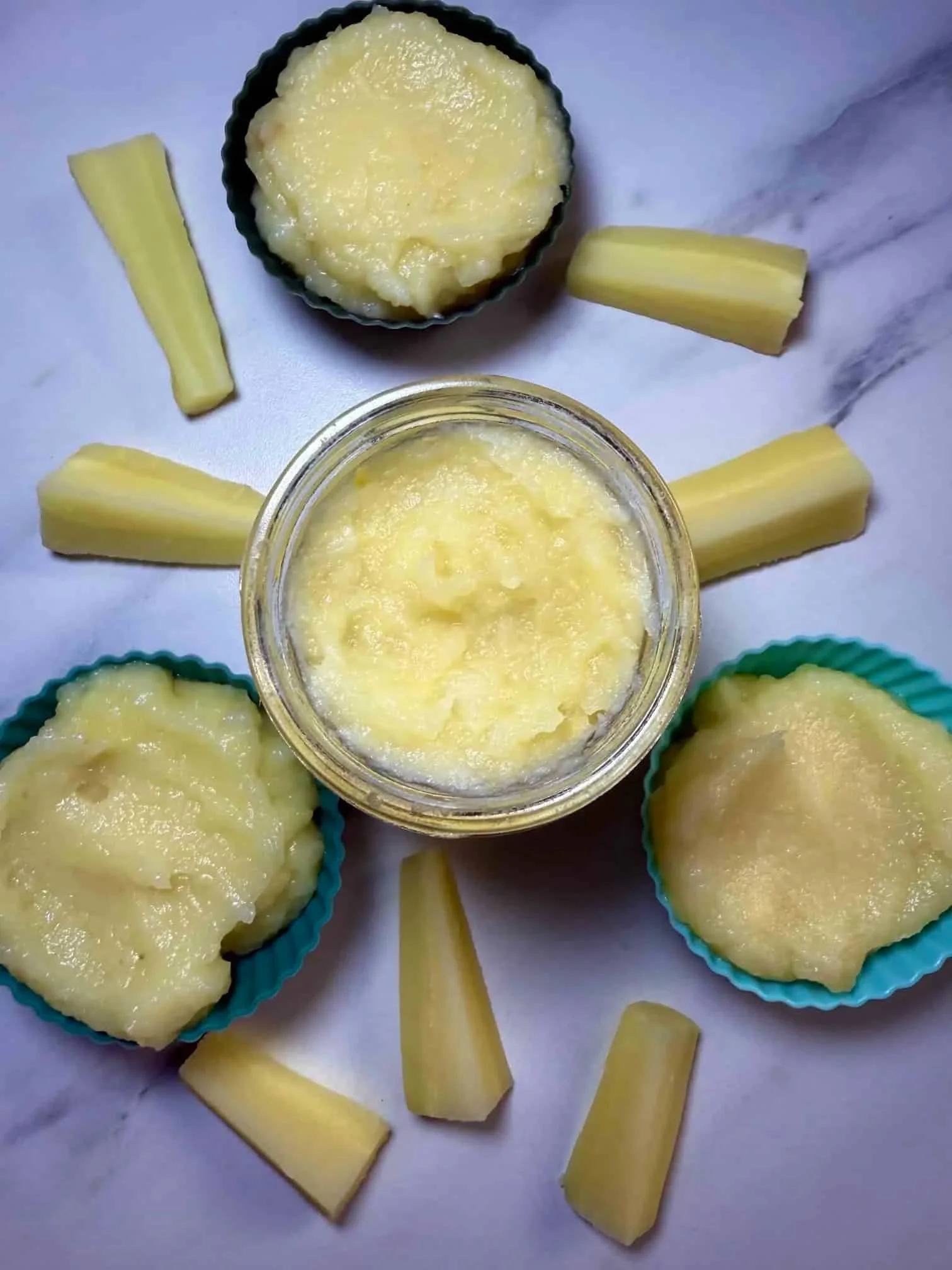



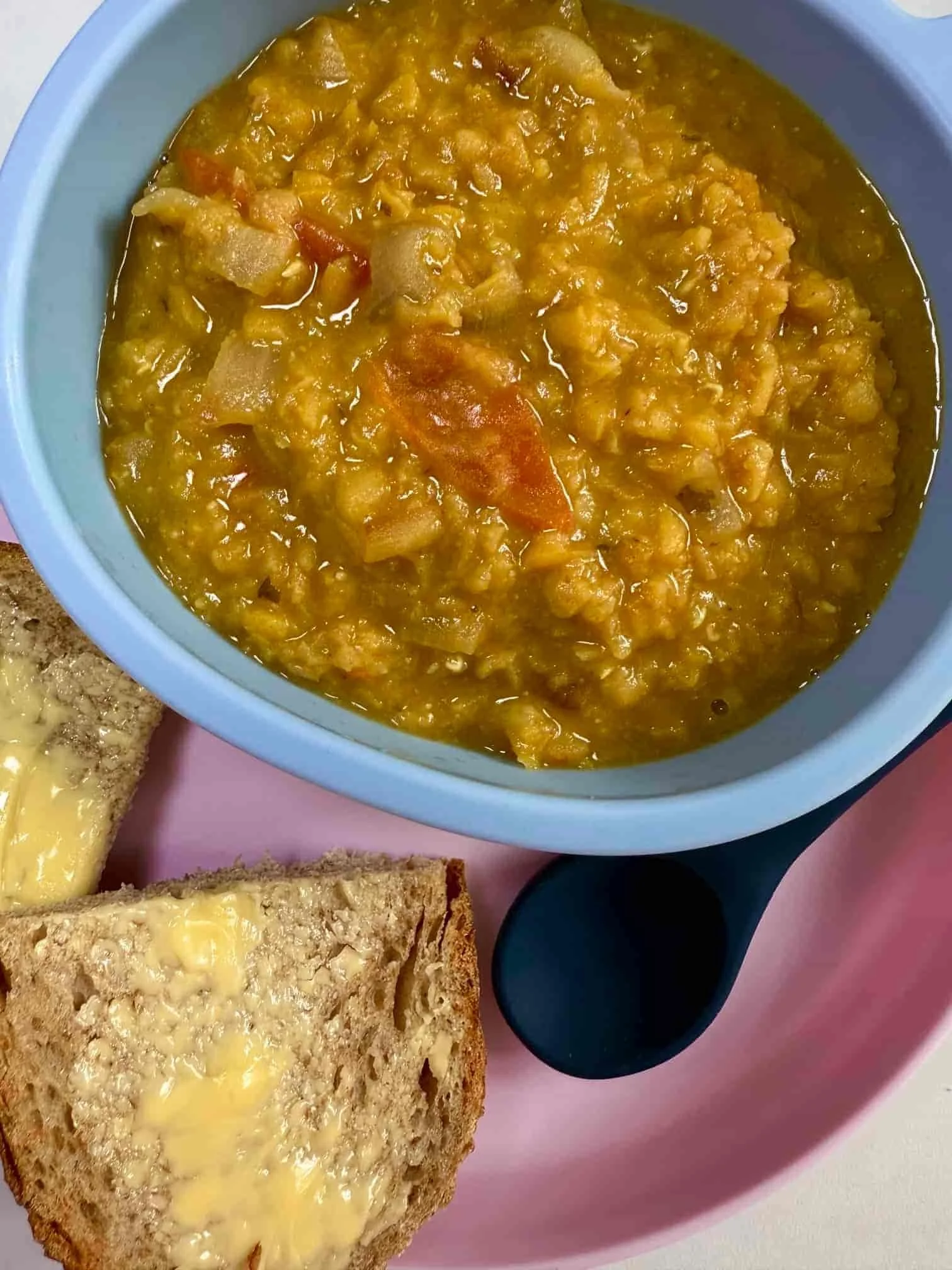


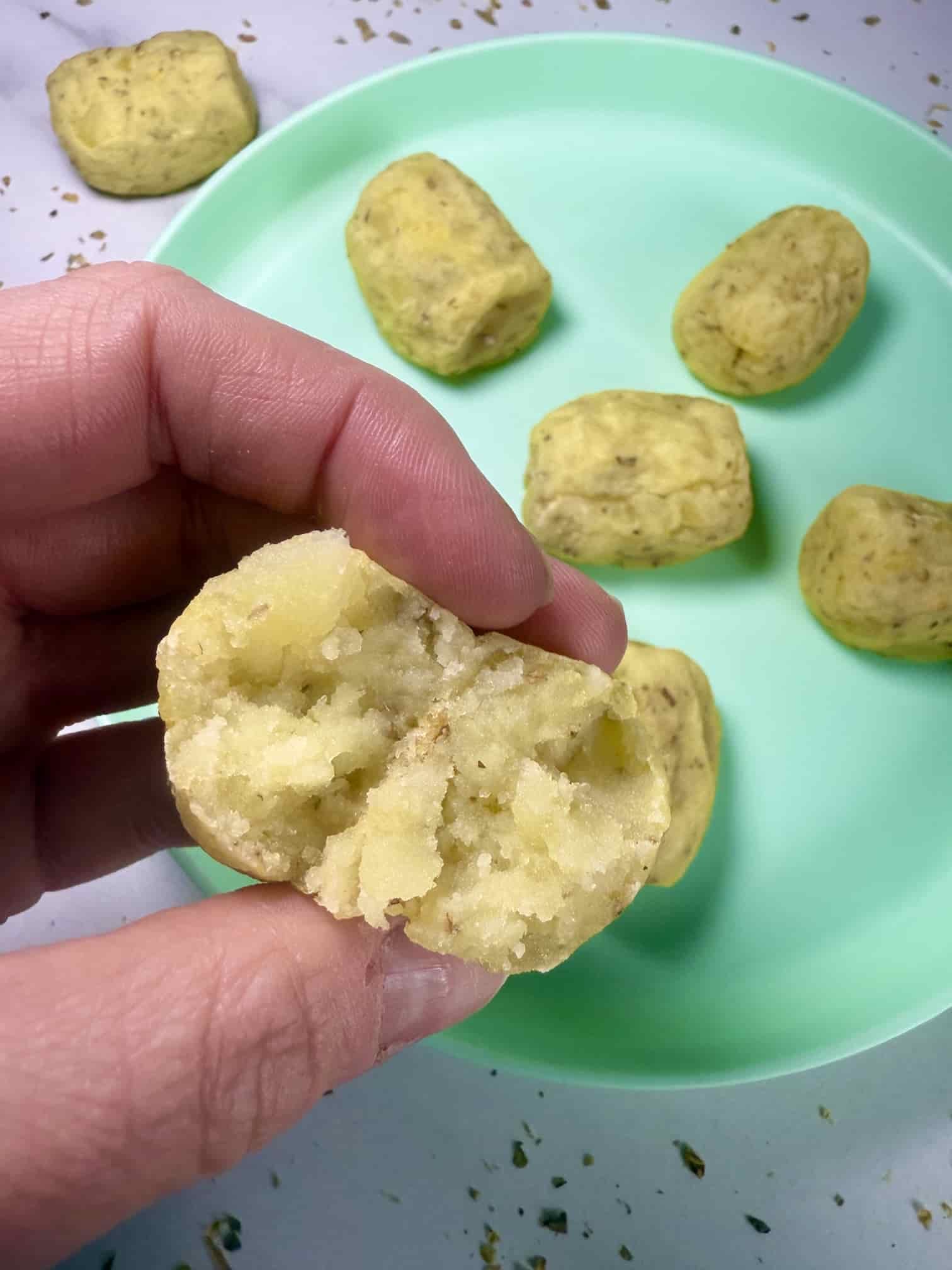

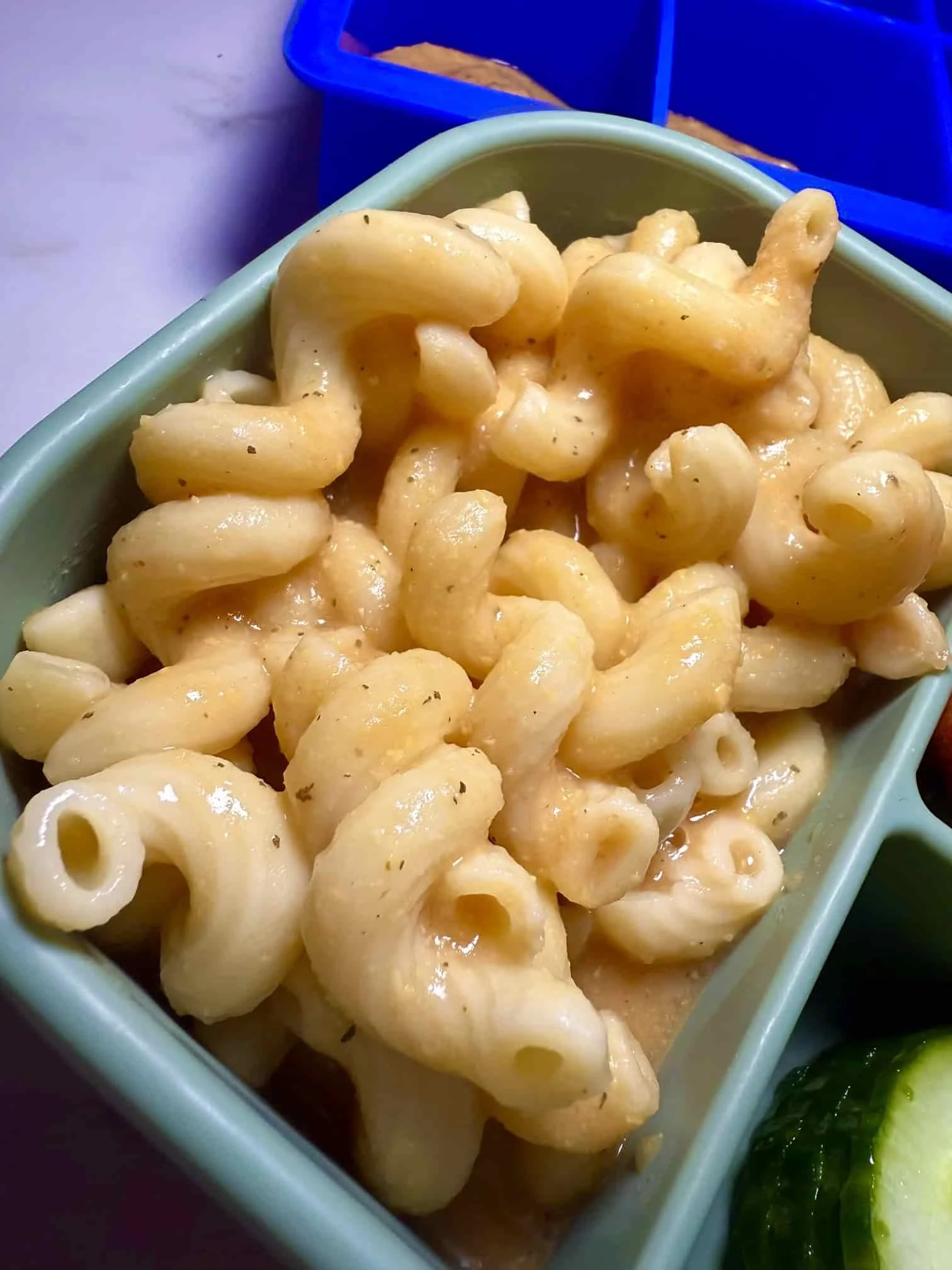


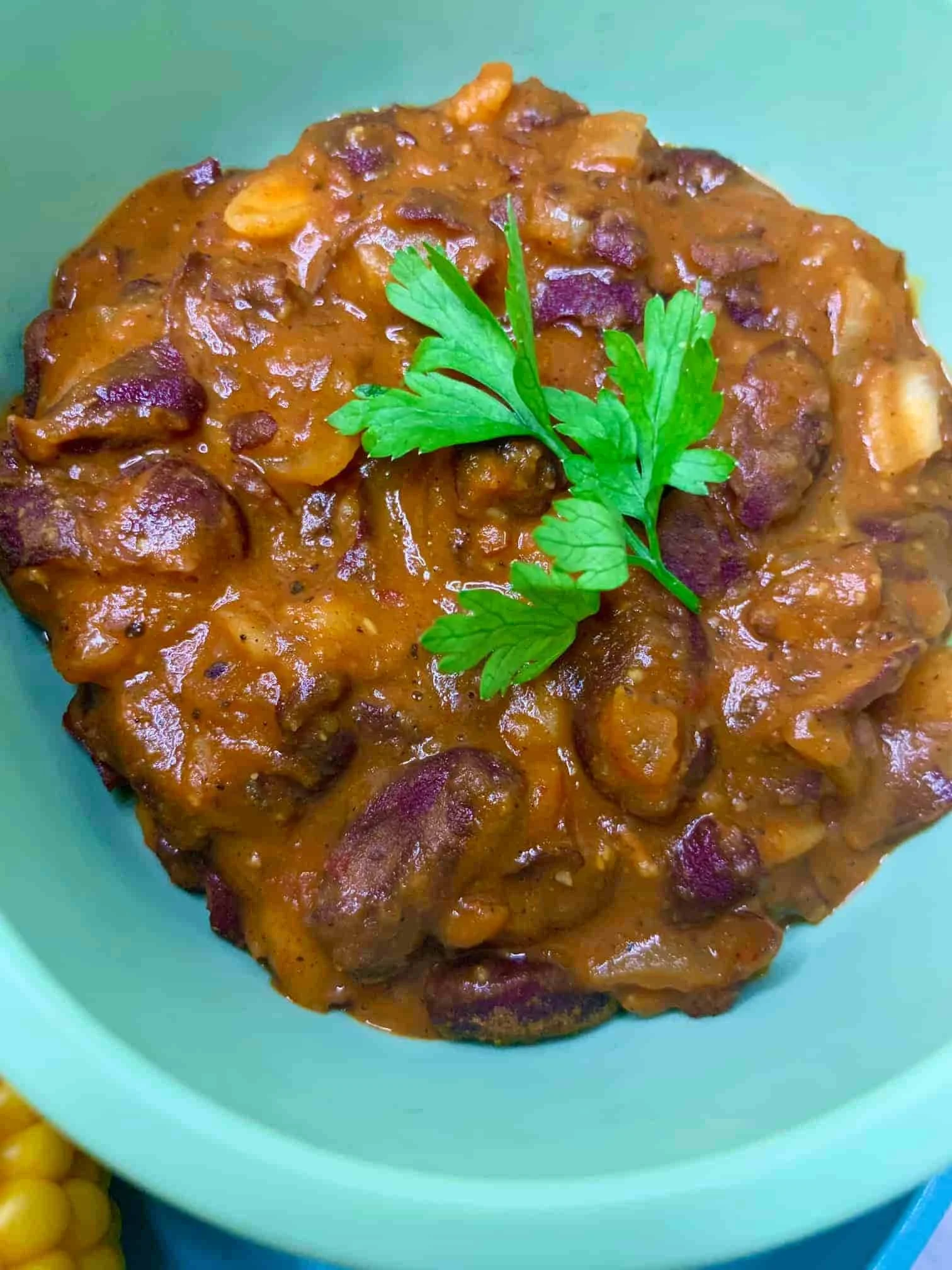

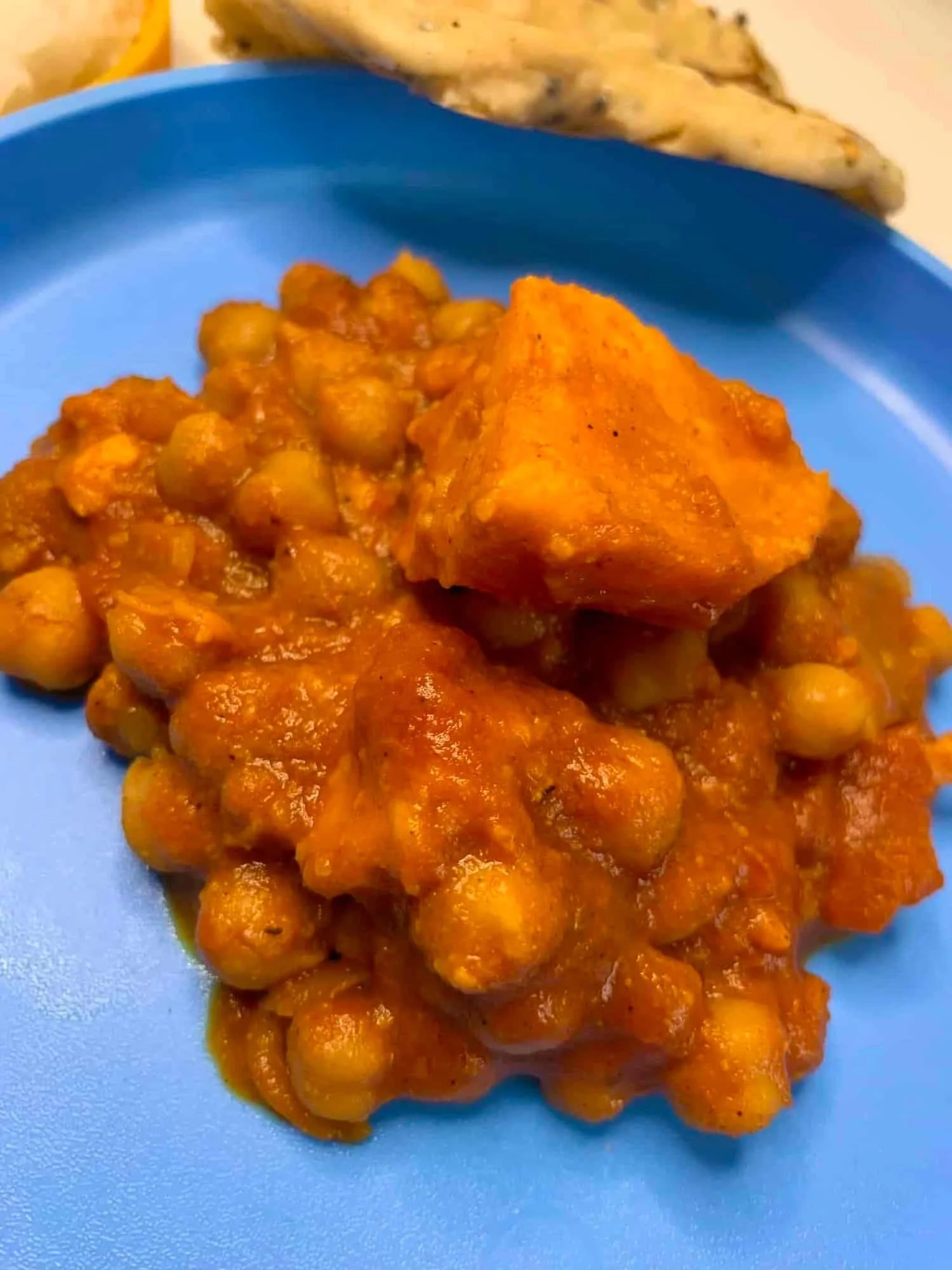
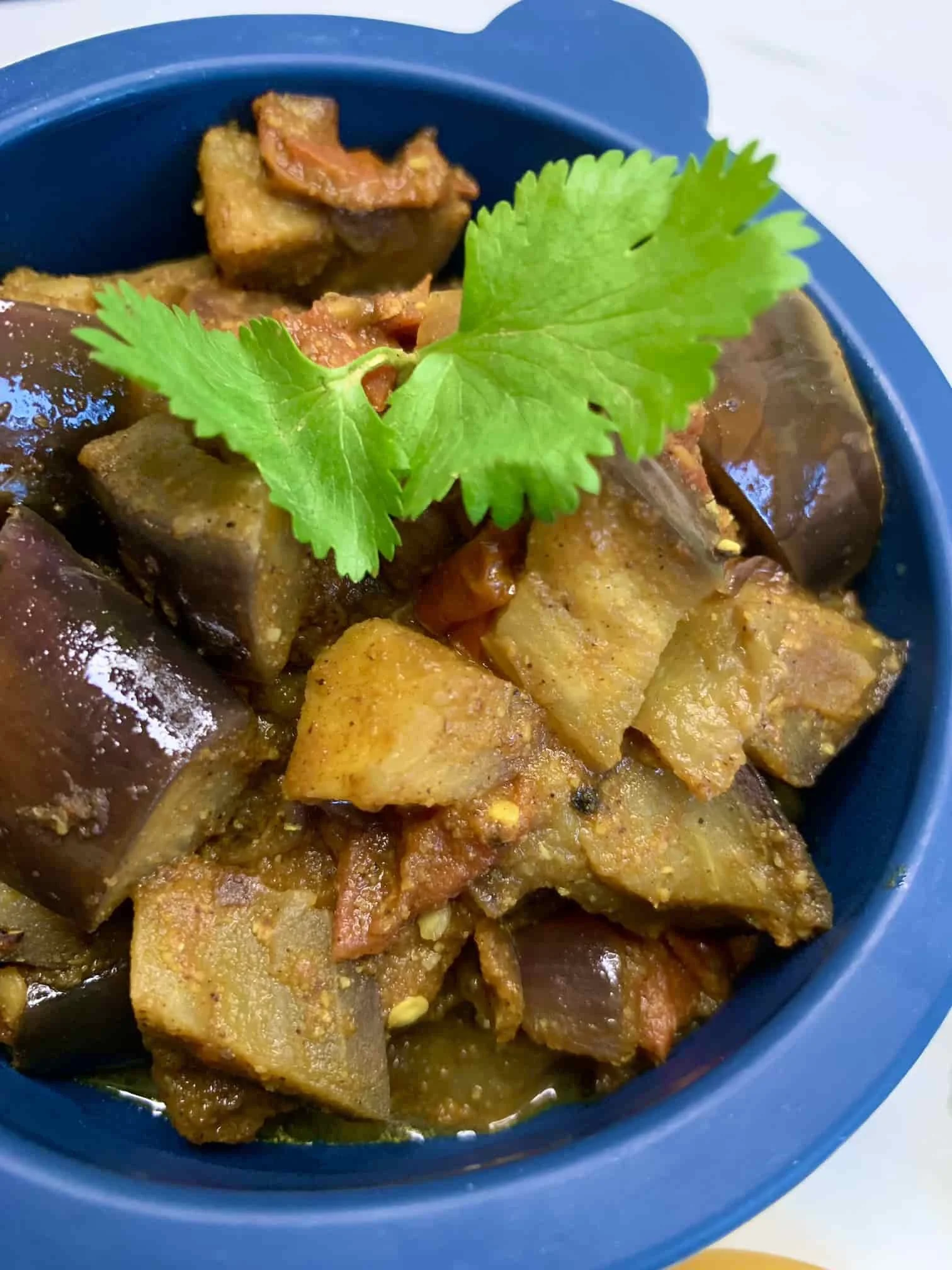
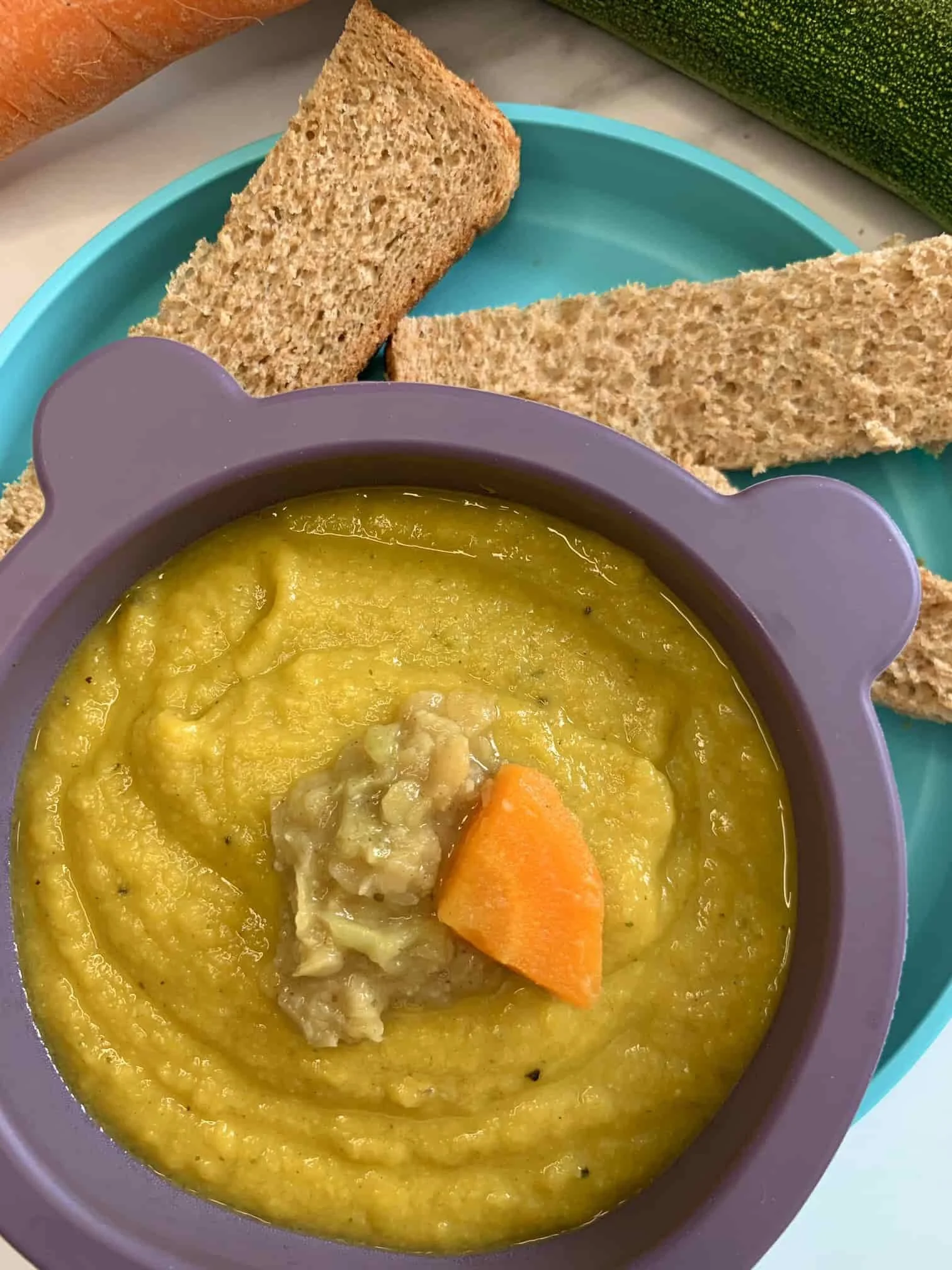
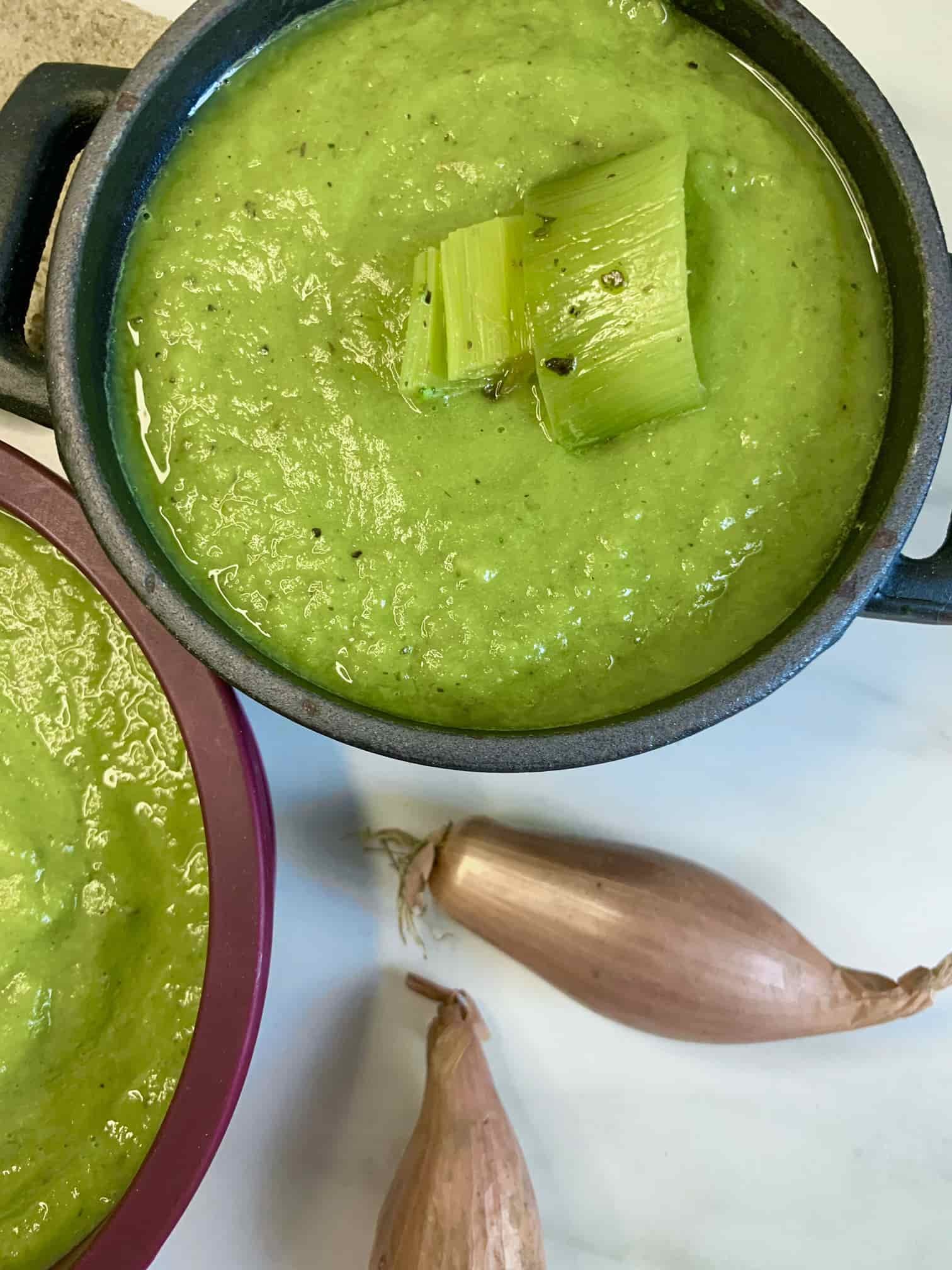
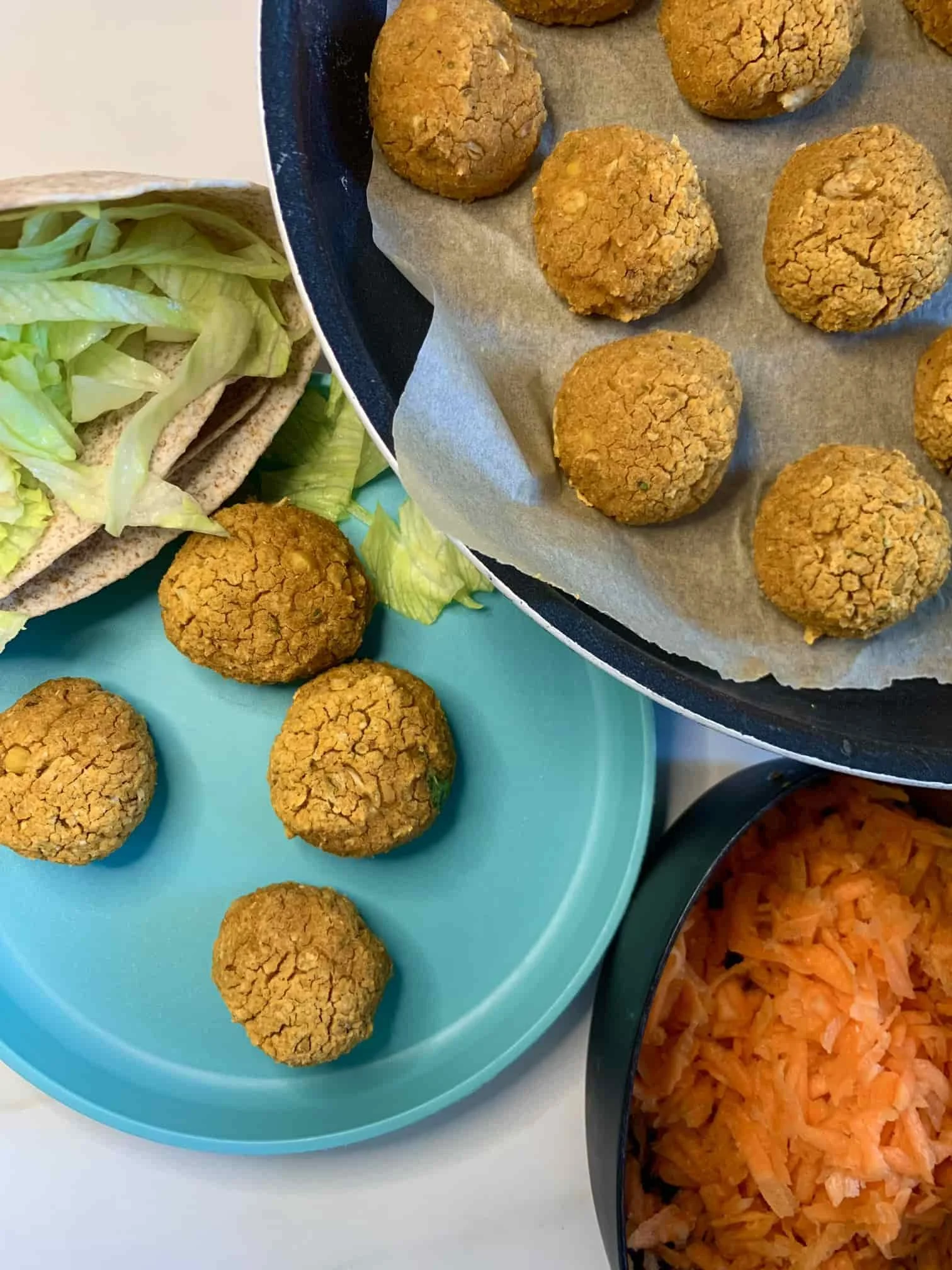
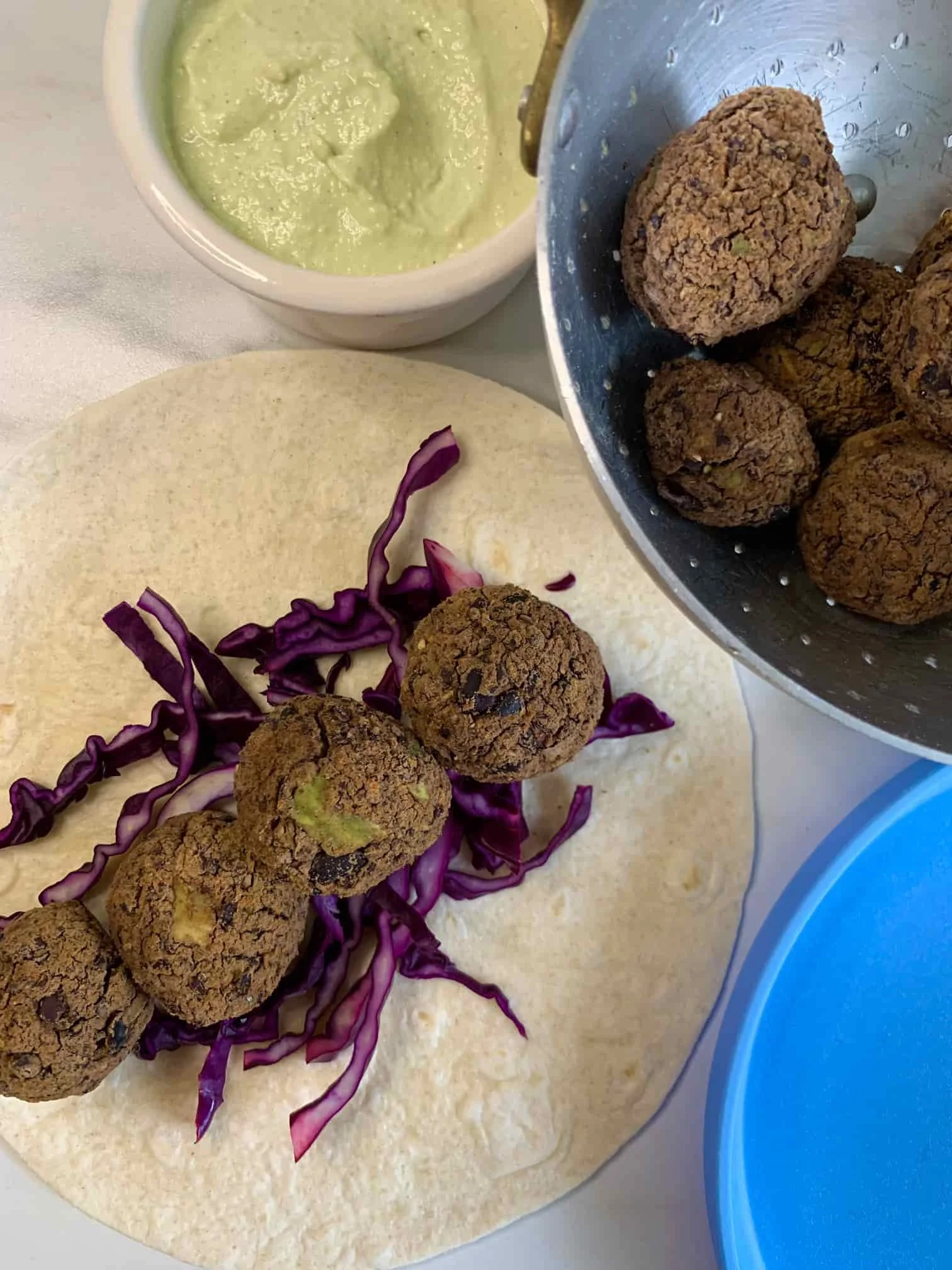

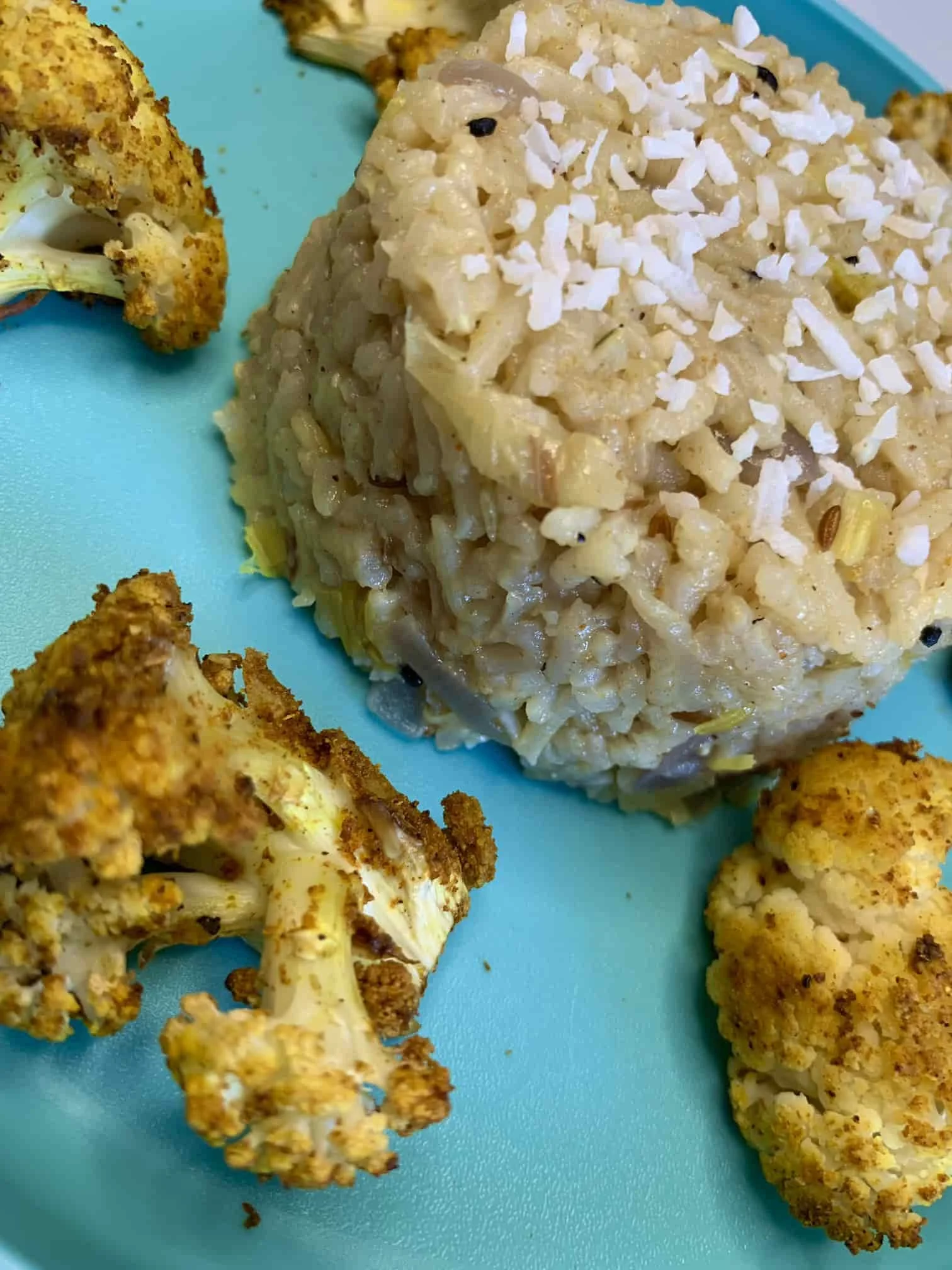









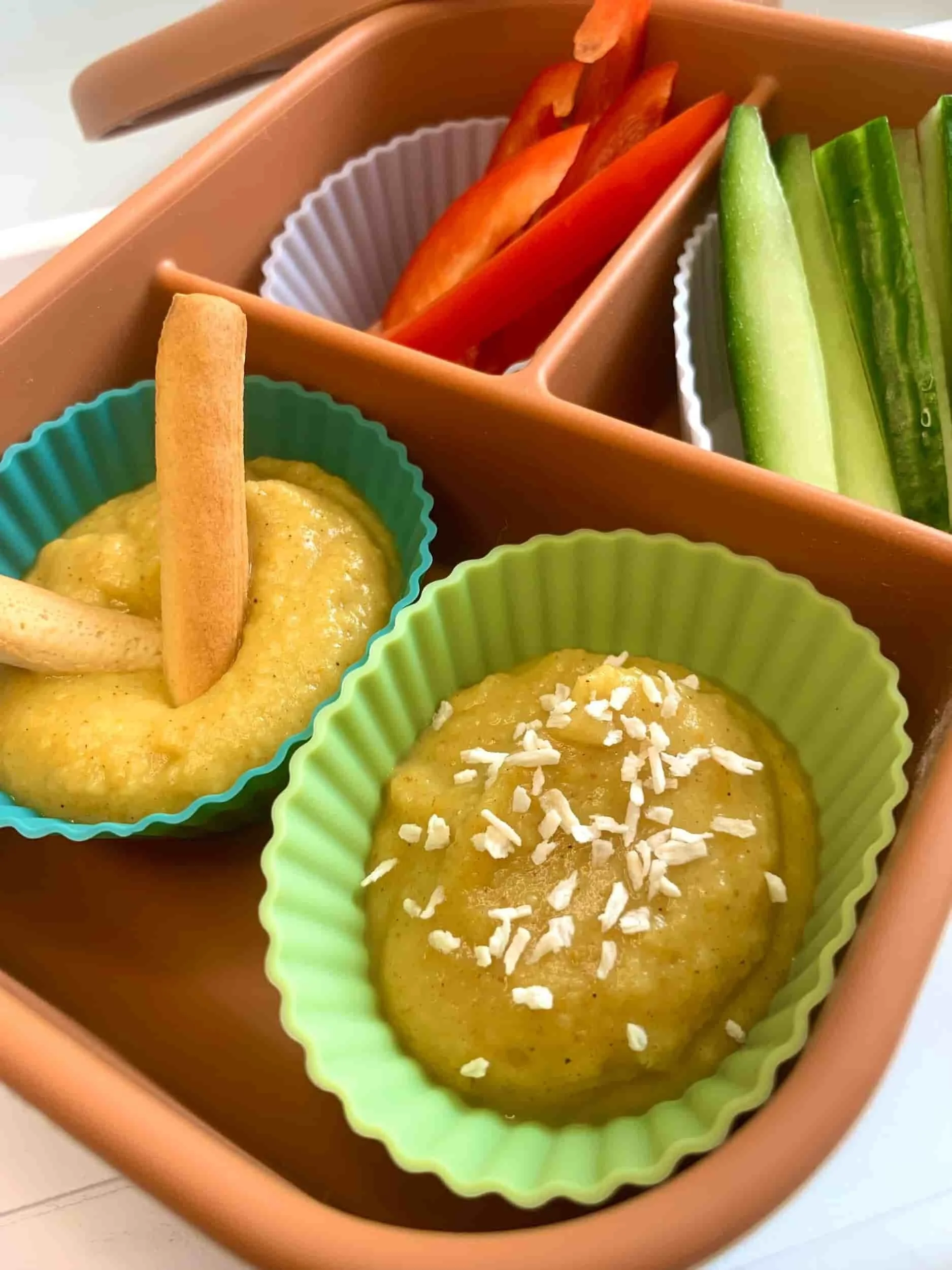
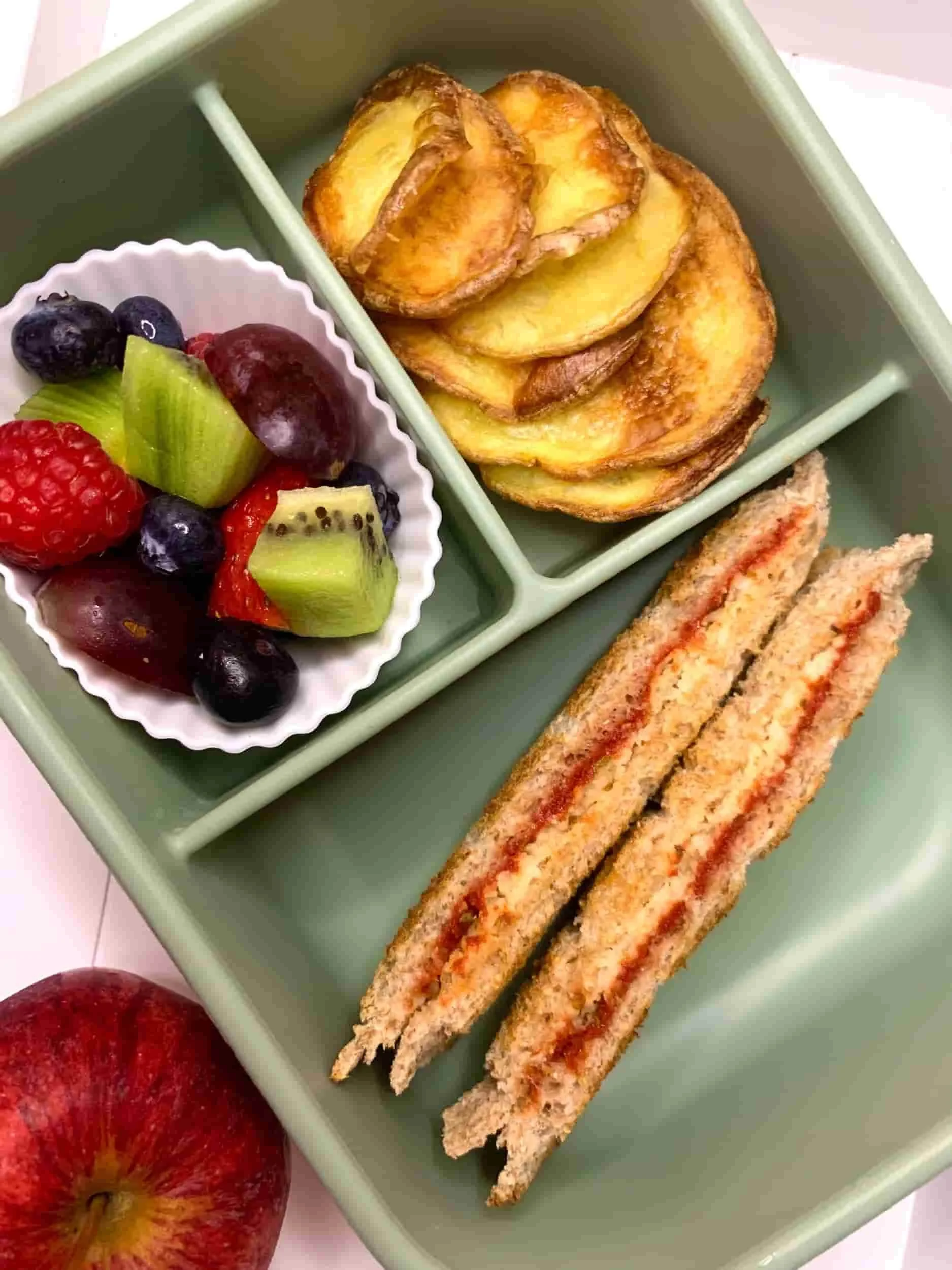
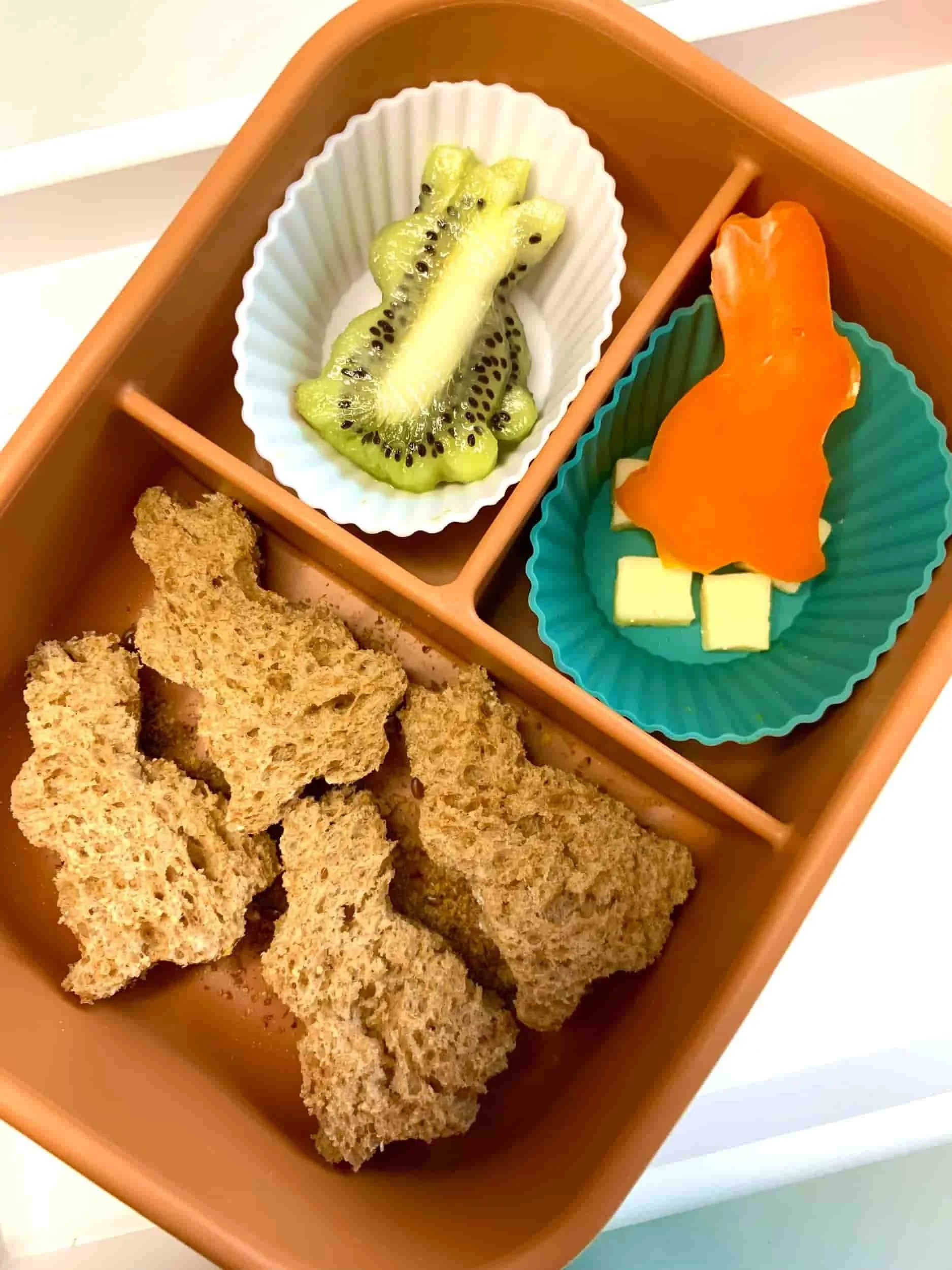

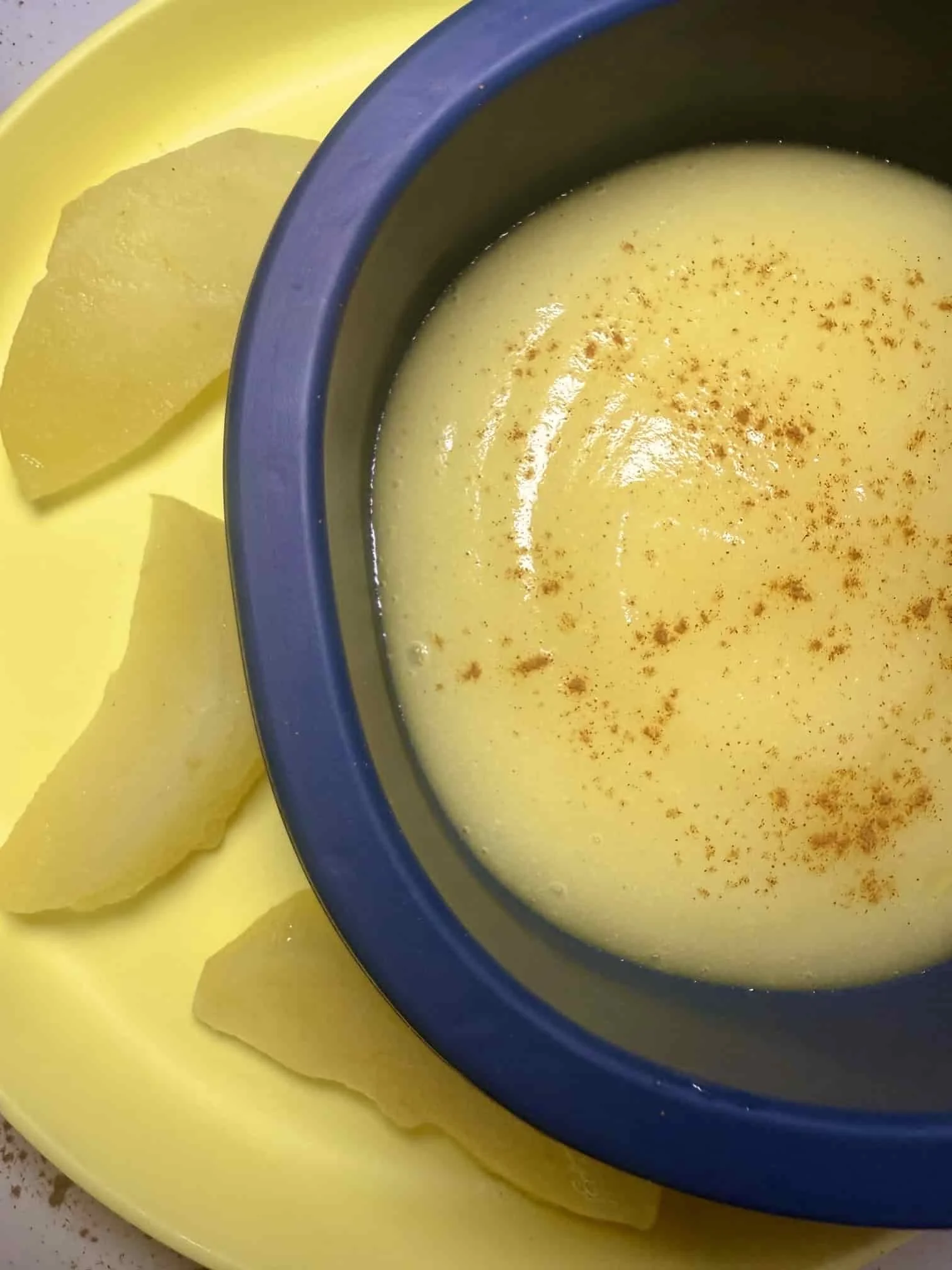
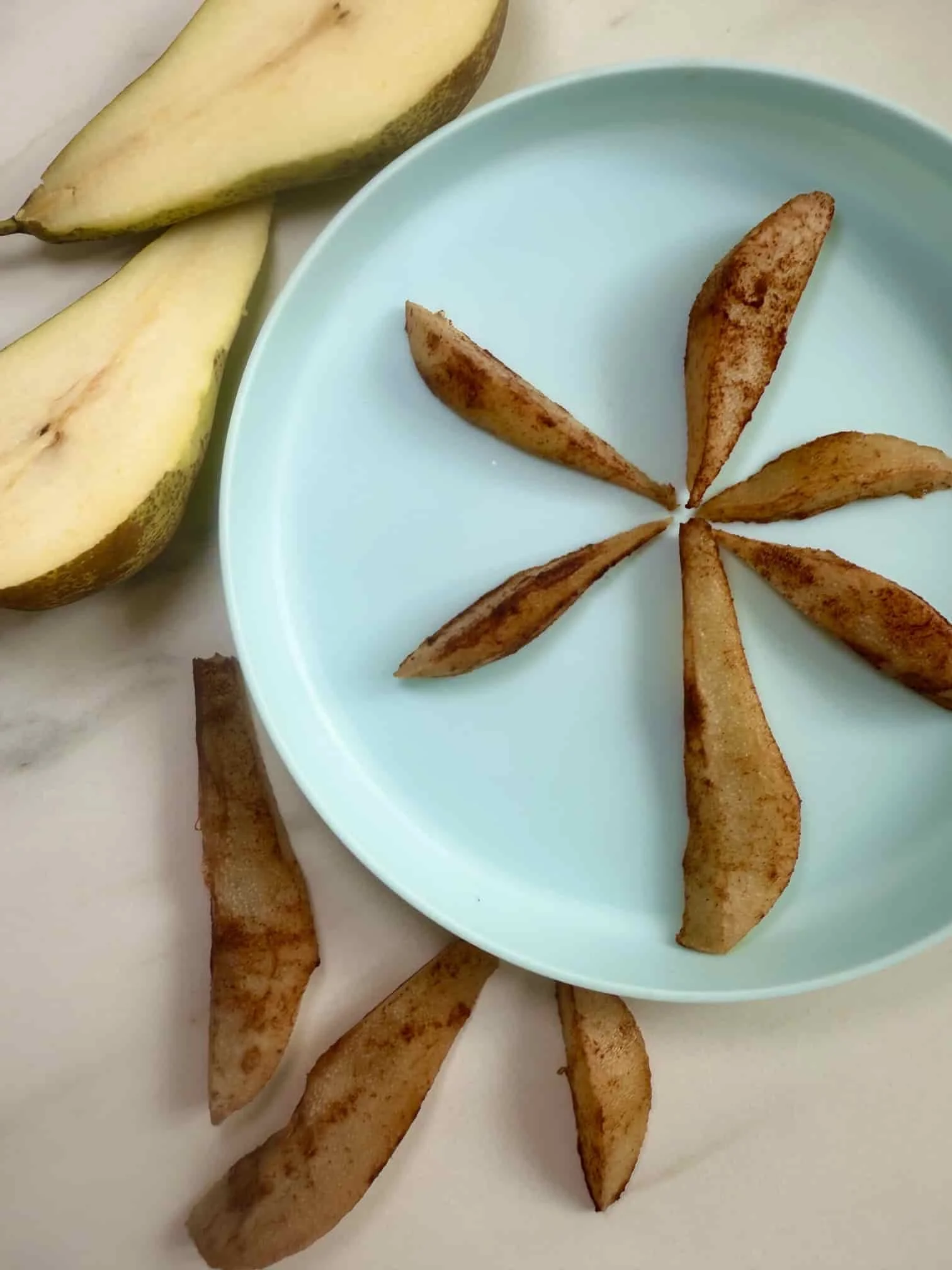










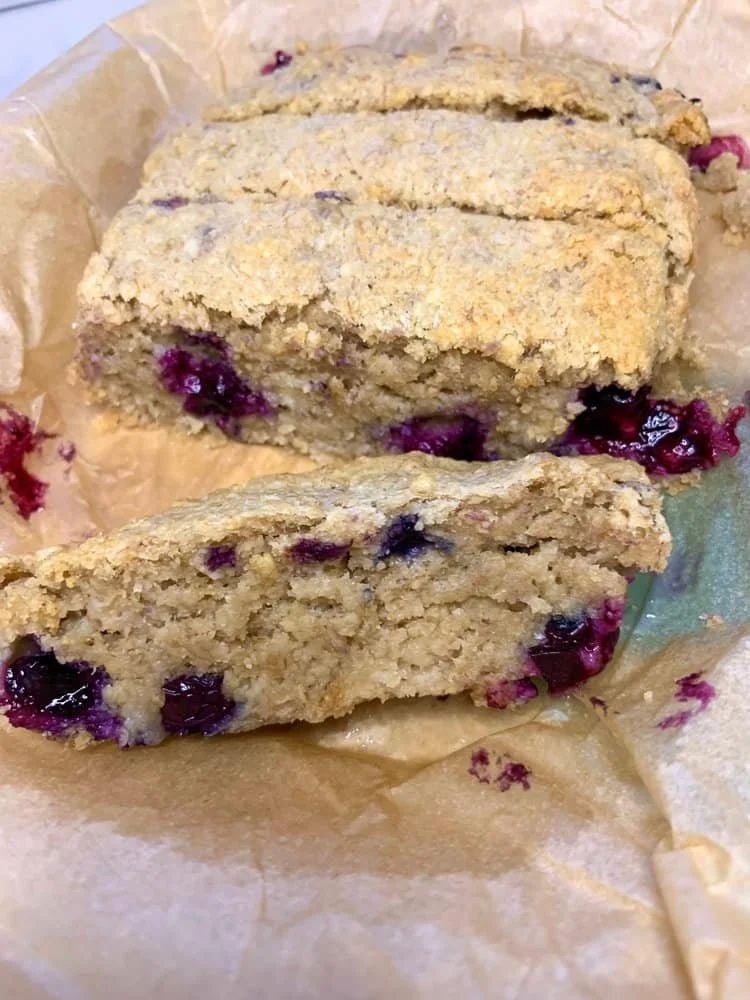






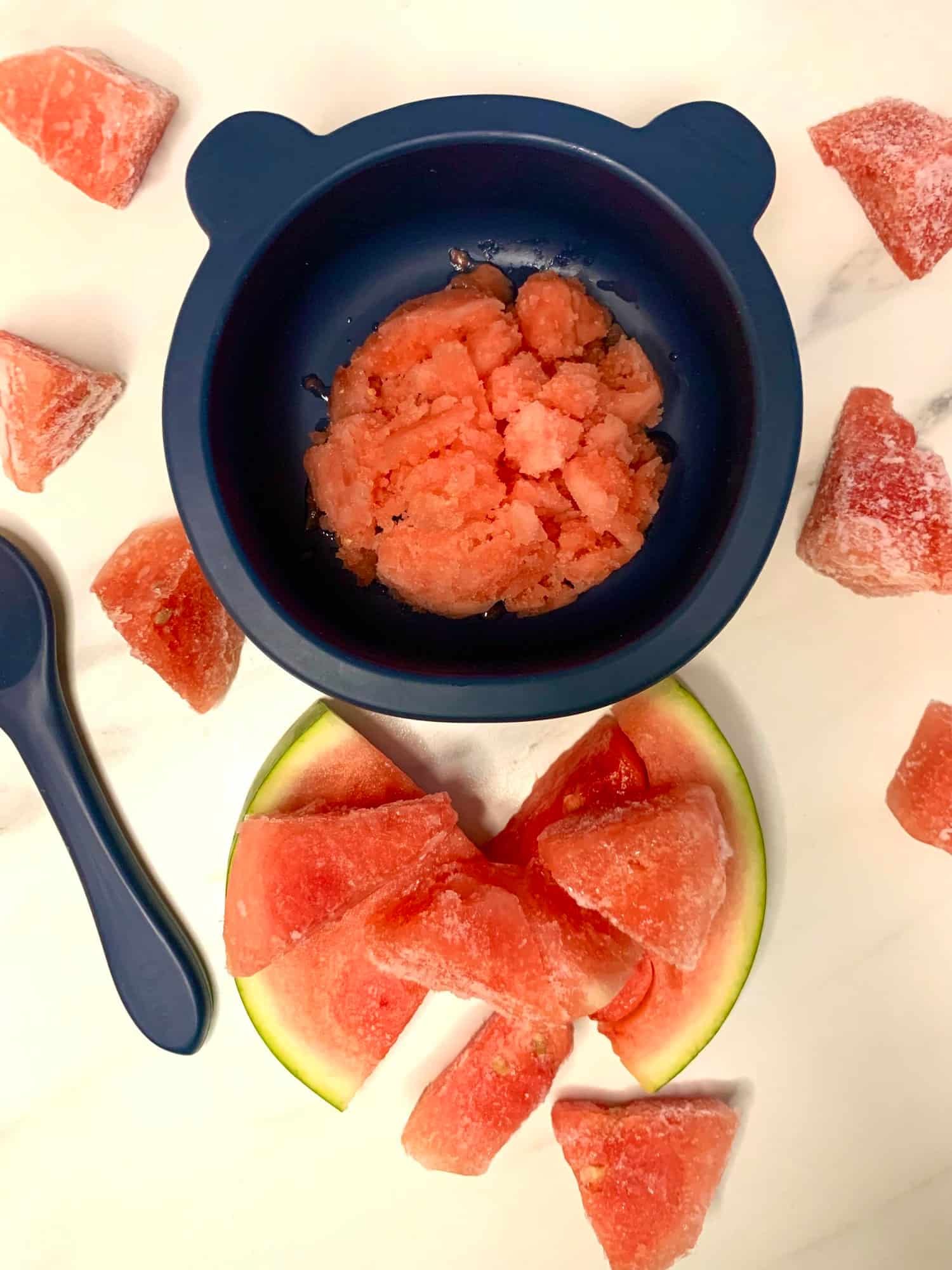









Applesauce fritters are an excellent finger food option for baby-led weaning as they are soft, easily manageable, and packed with flavour. Try for breakfast!